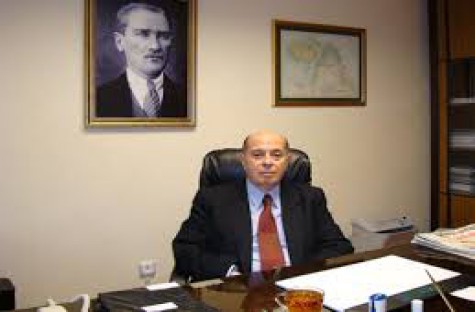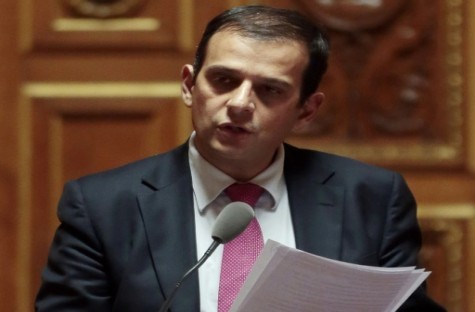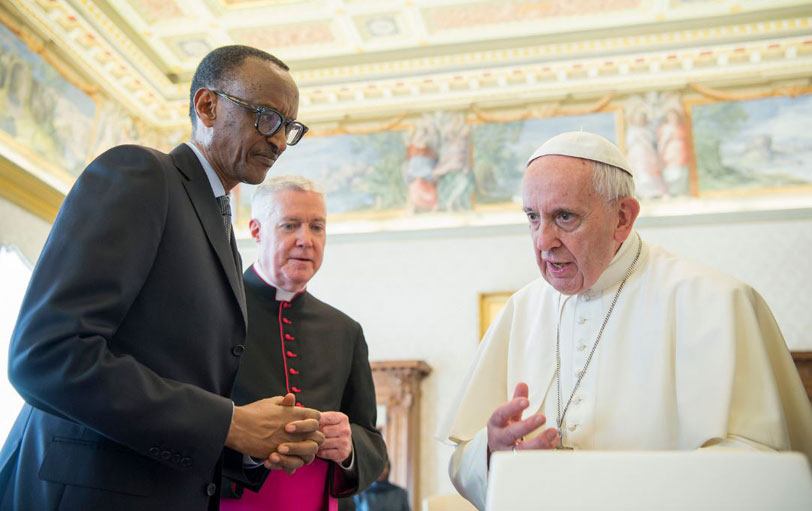By saying “the Armenian genocide is the first genocide of the 20th century” while receiving a delegation consisting of Catholic Armenians, the new Pope Francisco has displayed that he also maintains his views which he held during his cardinalship during his papacy.
After becoming Cardinal in 2001, Argentinian Jorge Mario Bergoglio of Italian origin has classified the 1915 events as genocide and going further, has also called on Turkey to recognize this ‘genocide’. In fact, during a ceremony for the erection of a big cross made of stone on an Armenian church in 2005, he has carried his stance as far as saying that he wants to be buried under this cross.
Although Bergoglio’s statements during his cardinalship -which is not a political office-, were not accepted by Turkey, they could have been met with some understanding, taking into consideration the influence of the Armenians in Argentina. But once he is the Pope, that’s altogether different. Apart from being the spiritual leader of the Catholic Church, popes are also the head of the Vatican State. With this title, their statements carry a political meaning and create political consequences.
All along, the Armenians have wanted the Vatican to recognize the genocide allegations, but by keeping relations with Turkey in consideration, the Vatican had not tended towards this. Following the acceptance of Turkey’s candidacy to the EU, by taking advantage of the adoption of resolutions by some of the parliaments of EU member countries (France, Italy, Germany, the Netherlands etc.) which recognize the genocide allegations, the Vatican had also recognized these allegations by taking into consideration the requests of the Armenian Gregorian Church with which it wanted to establish close relations for religious purposes. However, wanting to bring a nuance to this recognition, Pope Jean-Paul II, during his visit to Yerevan in 2001, had used the word “Meds Yeghern” (great tragedy) instead of the word “genocide” which seems to have the same meaning in Armenian and had not addressed this issue once again. On the other hand, his predecessor Benedict XVI paid special attention to not use the word “genocide”. Yet, the new Pope Francisco, without taking into consideration the stance of his predecessors, has at the first opportunity described the 1915 events as genocide.
For the Vatican, Turkey has a special significance. Apart from acknowledging that Turkey is the most powerful country of the Middle East, the Vatican also regards Turkey as important for basically two main reasons. The first is that Asia Minor (Anatolia) is the territory on which Christianity had first developed and where the Christians entirely had settled until the XIth century. Therefore, the Vatican attaches importance to the preservation of religious monuments in Turkey belonging especially to the first period of Christianity, to opening some of these old church to worship, and also the maintenance of the especially religious and cultural rights of the Christians in Turkey, in particular of the Catholics which are few in numbers. Secondly, within the framework of relations with other Christian churches, the Vatican pursues a policy of maintaining close relations with the Greek Patriarchate of Istanbul of which it recognizes its ecumenical (universal) attribute. For this purpose, during the last fifty years the Popes have visited the Patriarch.
Despite the fact that Vatican can easily obtain the cooperation of the Turkish government for the preservation of Christian monuments in Turkey and the religious and cultural rights of Catholics, Pope's visit to Istanbul Greek Patriarchate caused some major problems. The major difficulty was Turkey’s position not to recognize the ecumenical title of the Patriarchate; in other words, recognizing the Patriarchate not as the supreme spiritual leader of all the Orthodox Christians, but as the religious leader of the Greeks of Turkey. On the contrary, Vatican’s main interest for the Patriarchate is because of its ecumenical title. That’s why Pope Paul VI wanted to come to Istanbul only to visit the Patriarchate in 1967, but had to go to Ankara when Ankara insisted that the Pope must visit Turkey as the Head of Vatican State and only after this official visit, he could also pay a personal visit to the Patriarch in Istanbul. This method has also been applied in the visits of the other Popes.
As could be seen, Turkey and the Vatican have some relations which cannot be underestimated. Swift continuation of these relations depends, before everything else, on the absence of important problems in between the parties. However, the new Pope’s embracement and even open acknowledgement of the genocide allegations do not comply with Turkey’s policy on this issue and -in our opinion- creates a new problem which is hardly necessary or helpful for the future relations.
© 2009-2025 Center for Eurasian Studies (AVİM) All Rights Reserved
 FRANCE AND THE ARMENIAN QUESTION
FRANCE AND THE ARMENIAN QUESTION
EXPECTATION OF CONDOLONCE
THE PERINÇEK CASE
 THE CLAIM OF WESTERN ARMENIA AND ITS REFLECTIONS IN THE PUBLIC OPINION
THE CLAIM OF WESTERN ARMENIA AND ITS REFLECTIONS IN THE PUBLIC OPINION
 PROMINENT SUPPORTER OF ARMENIAN LOBBIES IN FRANCE SENTENCED FOR CORRUPTION
PROMINENT SUPPORTER OF ARMENIAN LOBBIES IN FRANCE SENTENCED FOR CORRUPTION
 POPE FINALLY APOLOGIZES FOR CHURCH’S ROLE IN THE RWANDAN GENOCIDE
POPE FINALLY APOLOGIZES FOR CHURCH’S ROLE IN THE RWANDAN GENOCIDE
 AMBASSADOR WARLICK’S SIX POINTS REGARDING PEACE FOR NAGORNO-KARABAKH
AMBASSADOR WARLICK’S SIX POINTS REGARDING PEACE FOR NAGORNO-KARABAKH




























